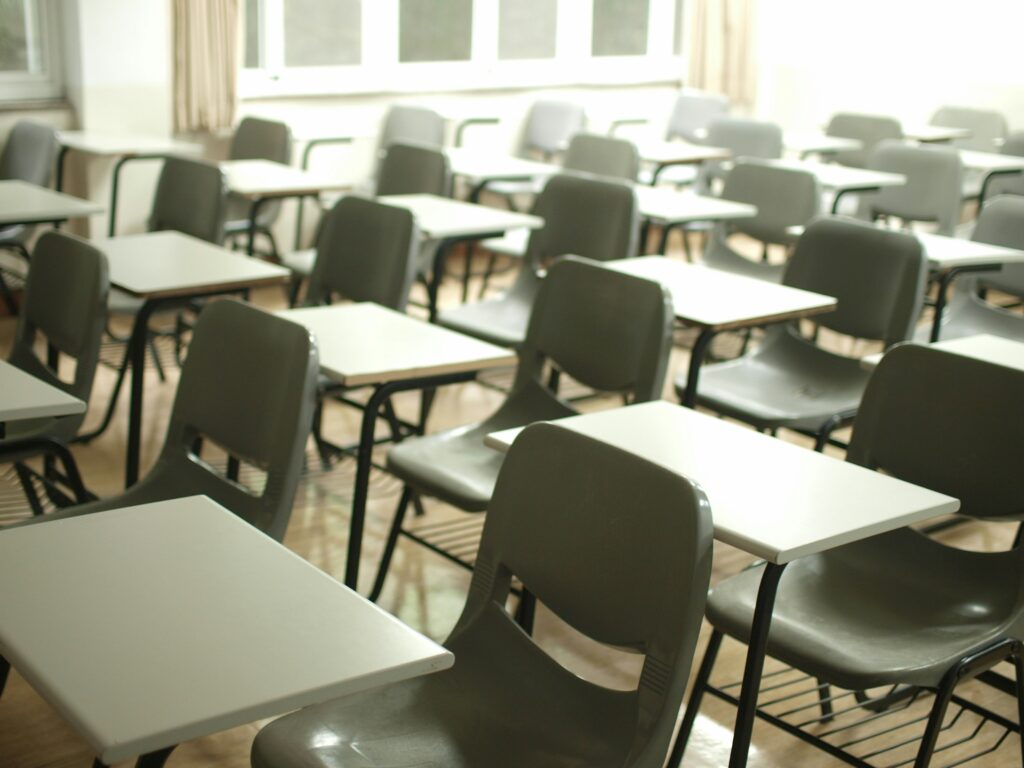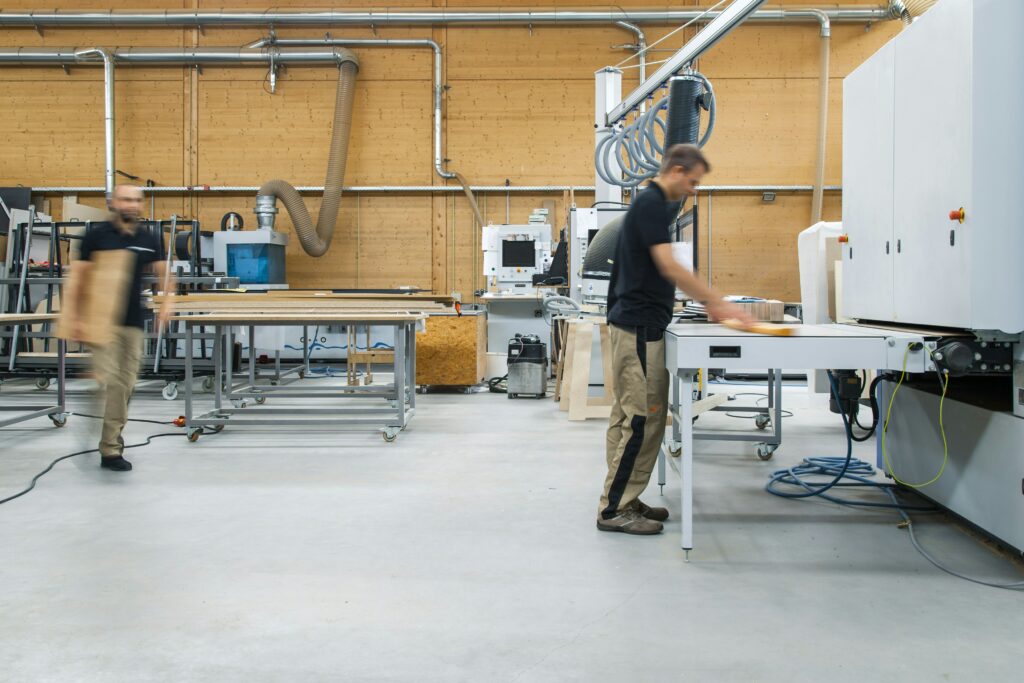General election year is upon us, and the polls are pointing to a clear outcome: Keir Starmer’s Labour party look set to take the reins of Government.
But what would a Labour Government mean for the education sector in the United Kingdom?
The Labour leader is often criticised for being a little hesitant to make many significant policy announcements. From this, Starmer has built a reputation for having somewhat vague intentions for government.
Yet on education policy, it would be difficult to claim that Labour’s proposals are light on detail. Their policy to end tax breaks for private schools has already made the headlines[i]. And just this week, a policy to recruit 6,500 new teachers was one of the five main items on their ‘First Steps for Change’ pledge card[ii].
But even beyond these, the party has announced a swathe of education policy proposals. The fact that the rest of these policies haven’t been making headlines is perhaps no surprise when we see that for UK voters, education is only 8th on the list of priorities. This places it well below other issues like health, the economy and even immigration which dominate the limelight[iii].
Regardless of the importance that the public places on the matter, it is already clear that an incoming Labour Government would embark upon some of the most major educational reforms seen in recent times[iv].
This blog post will outline several of the existing education policies which Labour has committed to. Of course, another reputation Starmer has developed is a flexibility over his commitment to existing policy proposals, so there is no guarantee that any of these policies will make it into law. But an investigation into what has been announced by the party is still of use to gain a flavour for what the education sector can expect from an upcoming Labour Government.
Curriculum Reforms

In a recent speech, Shadow Education Secretary Bridgett Phillipson pledged to continue driving standards in education up. But she also pledged to part ways with the Conservative’s own drive on standards that focussed on a ‘narrowed and joyless curriculum’[i].
Labour would instigate a curriculum and assessment review led by experts, seeking to produce a broader and richer curriculum[ii]. At the heart of this would be a drive towards higher standards in reading, writing and mathematics[iii].
The current Government’s push towards progress 8 and attainment 8 has widely been criticised for diminishing the traditionally less academic subjects. Labour would hold schools to account for student performance in at least one creative or vocational subject by adding these to the progress and attainment 8 brackets[iv]. There would subsequently be a renewed focus on music, art, sports and drama within schools[v].
In line with the recent widespread interest in oracy skills and the evidence for their positive impact on a range of outcomes, a Labour curriculum review would investigate how oracy could be weaved into existing subjects[vi]. For example, oracy would be developed in the form of presentation skills and structured classroom discussion in academic subjects, performances across drama and music, and team leadership in sports[vii]. More broadly there would be a greater emphasis placed on speaking and listening skillsthat would tie in with this aim[viii]. Primary schools would also get new funding to invest in world class early language interventions to improve oracy skills and future attainment[ix].
With an eye to rapidly developing transformations in technology across society, digital skills would become a mandatory component of the curriculum. They would be put on a par with reading, writing and maths for importance[x]. As part of this, AI skills and computer science education would be provided to every student to equip them for the future. [xi]
Finally, there would be a strategy to create the mathematics equivalent to phonics, by training primary non-specialists to better teach the subject[xii].
Teaching Reforms

In light of the worsening teacher recruitment crisis, Labour has committed to £347 million for a new teacher recruitment fund, enlisting 6,500 more teachers[i]. As part of this there would be a focus on closing skill gaps, improving career pathways and enhancing bursaries.
To ensure that the next generation of new teachers are of the highest quality, Labour would reinstate the requirement for all teachers to have or be working towards QTS, which was scrapped for academies under the Gove reforms of 2012[ii].
There are also proposals to reverse the tide of teacher departures seen under the current teacher retention crisis.
Recognising that this crisis is partly driven by the teaching workforce feeling increasingly fed up with the contempt shown to them by Government, there would be measures to ensure all staff are treated with the respect they deserve[iii]. There would be a review into how to make teaching a more valued profession that is seen as a desirable career pathway. In part, this would be addressed through a new national voice for all teachers and school support staff[iv].
To tackle workload issues, there would be a review into reducing time spent marking[v]. There would be a focus on how to incorporate new technology like AI to ensure that it is enabling and empowering teachers, allowing them to be more productive and to produce higher quality lessons[vi].
The delivery of the Early Career Framework would be revised to ensure high standards and development of new teachers. There would be new ECF retention payments of £2,400 for teachers who complete the 2-year framework, which would cost around £50 million in total[vii].
A new Teacher Training Entitlement fund for all teachers would ensure ongoing access to progression throughout their careers. £210 million has been earmarked to ensure both access to continued professional development and al time for it to be undertaken[viii].
To encourage career progression into leadership roles, £47 million would be provided for a new Excellence in Leadership programme for new heads[ix]. A mentoring framework for new school leaders would form part of this, ensuring that best practice is more easily disseminated, and support is easier to access[x]. There would also be greater recognition of the role that mid-career teachers can play in supporting and developing the next generation of teachers to undertake these roles[xi].
School Improvement

Changes to Ofsted form a core part of the reforms Labour would undertake in improving schools.
Labour is seeking to lead a consultation in scrapping the Ofsted grading system, replacing current one word school assessments with a report card that details what the school is doing well and what they can do to improve[i]. This would see Ofsted assuming a greater role in school improvement that focusses on supporting struggling schools, rather than reprimanding them.
These new report cards would also indicate how well schools are supporting the attainment and inclusion of pupils with SEN and those who are eligible for free school meals[ii].
Ofsted would be tasked with conducting annual safeguarding checks, with a focus on reviewing off-rolling and absences in light of growing absence rates following the pandemic[iii].
Ofsted would also be given new powers to inspect multi academy trusts, recognising their intrinsic role in the state of schools across the country[iv].
To address disparities in the provision of education across the UK and improve outcomes for all students regardless of their geographical location, regional school improvement teams would be established[v]. Civil servants would be tasked with developing areas identified as being weaker by Ofsted. Greater collaboration would be fostered between better and weaker performing schools, with the aim being to make evidence-based best practice more accessible[vi]. These teams would see the role of Ofsted moving away from pursuing regulatory aims and instead focussing on school improvement, ensuring leaders of struggling schools know what support is available to them[vii].
Supporting Students

Labour have indicated a strong desire to tackle inequalities in education through providing a comprehensive set of initiatives that support all students to learn to the best of their capabilities.
In Primary schools, every child would have access to free breakfast clubs to alleviate the effects of child poverty. At these clubs, all reception pupils would partake in supervised toothbrushing[i].
In early years, there would be increased investment in early speech and language skills and stronger mechanisms for early identification of children who need greater support at this stage[ii]. This links with a desire to improve schools’ capabilities to pick up SEND sooner[iii].
Childcare would be reformed to broaden support available and allow parents more flexibility in work[iv]. Childcare provision itself would be reviewed in line with extensive evidence that indicates the positive impact of high-quality early years education on long term outcomes and reducing later life inequalities[v]. New childcare places would be introduced to build capacity in the sector, and workers would be provided with high quality training that tallies with the skilled work they undertake[vi].
There are several policies related to mental health support for young people and their families. All schools look set to receive counselling staff for pupils[vii], and there would be mental health support hubs available in communities for young people and their families. Parents of early years students would receive mental health support through drop ins, and the hubs would aim to bring down waiting times and increase access to these support systems[viii]. For young people, the aim would be to ensure early intervention is available to prevent problems from escalating in the future[ix]. Thousands of new staff would be recruited to bring down CAMHS waiting lists.
Students would have greater careers support. More careers advice would be provided by training over a thousand new careers advisors and ensuring that these advisors have up to date knowledge of post 16 pathways[x]. Every student would have access to a guaranteed two-week work experience placement, coordinated locally by careers advisors and specialist hubs[xi]. The citizenship curriculum would be updated to include education around practical life skills vital for student career prospects[xii].
All students in Pupil Referral Units would be assigned a 1:1 mentor aimed at providing personal, academic and career guidance. [xiii]
In line with proposals set out by the Tony Blair Institute[xiv], Labour would introduce digital numbers unique to every student, that provide quick access to all their educational data[xv]. This number would allow staff to track each child’s progress, as well as identify underlying patterns around absences and SEND. Such records would stop children from falling between the gaps, and AI could be utilised to automatically search for possible problems and develop solutions before issues escalate[xvi].
Further Education and Skills

Labour’s plans include a considerable level of detail around further education and skills, with these plans being seen as a foundation for a wider industrial strategy seeking to develop regions across the UK.
There is a commitment to providing retraining and up skilling which is locally based and tailored to the needs of respective communities[i]. To assist with this, Technical Excellence Colleges would be established across the UK that provide the skills most in demand in the local setting. A national body, Skills England, would be set up to coordinate skills policy to ensure plans for development across the regions are being joined by the human capital necessary for them to be carried out.
The existing Apprenticeship Levy would be transformed into a Growth and Skills Levy, aiming to give employers more flexibility in which skills they desire to train their workforce[ii]. This would allow companies in the digital and green sectors to ensure that local people have the skills to deliver their projects without the need to recruit from further afield, a plan ultimately designed to boost local economies.
At least 80% of young people would be qualified to A-Level equivalent by 2035, with plans to push forward with the re-introduction of high-quality T-Levels[iii]. This aligns with an ambition to reverse the decline in the number of young people moving into sustained education, employment or training after 16-18 education, with an aim of having over 85% in a sustained destination by 2030.
As for higher education, Labour officials have stated their desire to prioritise support for the sector, but there hasn’t been a great deal of detail as to how so far. There is a desire to promote collaboration between local businesses and universities, to see how the needs of the local communities could be met, driving innovation and development in a similar way to the further education sector[iv]. But exactly what that role in innovation would be for universities has not yet been set out in detail.
Labour have also proposed a fairer deal for students and graduates on tuition fees, seeking to reduce monthly student loan re-payments, which would amount to a monthly tax cut for graduates[v].
There is an ambition for 50% of young people to be go to university[vi].
As regards lifelong learning, Labour would increase the opportunities for older learners to ensure that 3 million adults are supported to improve their skillsets over the next decade[vii].
Final Thoughts
For a party lambasted with criticism for being quiet on the policy front, there is clearly already a lot of meat to Labour’s proposals for education. The sector looks set for a transformative period should Labour win the election.
Considering this, for all the comparisons Starmer draws with Tony Blair, the Prime Minister in waiting would do well to echo Blair’s mantra of ‘Education, Education, Education’ at the next election.
It is promising that these announcements have already taken place before the release of the manifesto. But equally, as battle lines are increasingly being drawn in the run up to the election, we might expect more criticisms about spending plans from rival parties. Consequently, it would not be a great shock to see some of the spending plans laid out above being scaled back for the manifesto. Starmer has already shown his willingness to part with announcements in the name of financial prudence.
It ultimately remains to be seen what will make it into the manifesto, but the plans so far offer an insight into how Labour would shape education. There are certainly a lot of promising signs in the existing proposals.
[i] https://schoolsweek.co.uk/phillipson-invokes-zeal-of-gove-reforms-in-labour-schools-vision/
[ii] https://labour.org.uk/updates/stories/labours-first-steps-for-change/
[iii] https://www.ipsos.com/sites/default/files/ct/news/documents/2024-04/The%20Future%20of%20Public%20Services_1.pdf
[iv] https://lodestonecommunications.com/insights/how-to-prepare-for-labours-approach-to-education
[i] https://schoolsweek.co.uk/phillipson-invokes-zeal-of-gove-reforms-in-labour-schools-vision/
[ii] https://labour.org.uk/updates/stories/labours-plan-for-schools/
[iii] https://labour.org.uk/wp-content/uploads/2023/07/Mission-breaking-down-barriers.pdf
[iv] https://schoolsweek.co.uk/the-schools-week-labour-education-policy-tracker/
[v] https://schoolsweek.co.uk/phillipson-invokes-zeal-of-gove-reforms-in-labour-schools-vision/
[vi] https://schoolsweek.co.uk/the-schools-week-labour-education-policy-tracker/
[vii] https://www.aqi.org.uk/blogs/labours-oracy-plans-they-need-clear-goals/
[viii] https://labour.org.uk/updates/stories/labours-plan-for-schools/
[ix] https://www.aqi.org.uk/blogs/labours-oracy-plans-they-need-clear-goals/
[x] https://schoolsweek.co.uk/the-schools-week-labour-education-policy-tracker/
[xi] https://labour.org.uk/wp-content/uploads/2023/07/Mission-breaking-down-barriers.pdf
[xii] https://schoolsweek.co.uk/the-schools-week-labour-education-policy-tracker/
[i] https://schoolsweek.co.uk/the-schools-week-labour-education-policy-tracker/
[ii] https://schoolsweek.co.uk/the-schools-week-labour-education-policy-tracker/
[iii] https://schoolsweek.co.uk/phillipson-invokes-zeal-of-gove-reforms-in-labour-schools-vision/
[iv] https://labour.org.uk/updates/stories/labours-plan-for-schools/
[v][v] https://schoolsweek.co.uk/phillipson-invokes-zeal-of-gove-reforms-in-labour-schools-vision/
[vi] https://schoolsweek.co.uk/phillipson-invokes-zeal-of-gove-reforms-in-labour-schools-vision/
[vii] https://schoolsweek.co.uk/the-schools-week-labour-education-policy-tracker/
[viii] https://schoolsweek.co.uk/the-schools-week-labour-education-policy-tracker/
[ix] https://schoolsweek.co.uk/the-schools-week-labour-education-policy-tracker/
[x] https://labour.org.uk/wp-content/uploads/2023/07/Mission-breaking-down-barriers.pdf
[xi] https://labour.org.uk/wp-content/uploads/2023/07/Mission-breaking-down-barriers.pdf
[i] https://schoolsweek.co.uk/the-schools-week-labour-education-policy-tracker/
[ii] https://labour.org.uk/wp-content/uploads/2023/07/Mission-breaking-down-barriers.pdf
[iii] https://schoolsweek.co.uk/the-schools-week-labour-education-policy-tracker/
[iv] https://labour.org.uk/updates/stories/labours-plan-for-schools/
[v] https://labour.org.uk/updates/stories/labours-plan-for-schools/
[vi] https://labour.org.uk/wp-content/uploads/2023/07/Mission-breaking-down-barriers.pdf
[vii] https://labour.org.uk/wp-content/uploads/2023/07/Mission-breaking-down-barriers.pdf
[i] https://schoolsweek.co.uk/the-schools-week-labour-education-policy-tracker/
[ii] https://labour.org.uk/updates/stories/labours-plan-for-schools/
[iii] https://labour.org.uk/updates/stories/labours-plan-for-schools/
[iv] https://labour.org.uk/wp-content/uploads/2023/07/Mission-breaking-down-barriers.pdf
[v] https://labour.org.uk/wp-content/uploads/2023/07/Mission-breaking-down-barriers.pdf
[vi] https://labour.org.uk/wp-content/uploads/2023/07/Mission-breaking-down-barriers.pdf
[vii] https://schoolsweek.co.uk/the-schools-week-labour-education-policy-tracker/
[viii] https://labour.org.uk/wp-content/uploads/2023/07/Mission-breaking-down-barriers.pdf
[ix] https://labour.org.uk/wp-content/uploads/2023/07/Mission-breaking-down-barriers.pdf
[x] https://labour.org.uk/wp-content/uploads/2023/07/Mission-breaking-down-barriers.pdf
[xi] https://labour.org.uk/wp-content/uploads/2023/07/Mission-breaking-down-barriers.pdf
[xii] https://schoolsweek.co.uk/the-schools-week-labour-education-policy-tracker/
[xiii] https://labour.org.uk/wp-content/uploads/2023/07/Mission-breaking-down-barriers.pdf
[xiv] https://www.institute.global/insights/public-services/future-of-learning-delivering-tech-enabled-quality-education-for-britain
[xv] https://labour.org.uk/wp-content/uploads/2023/07/Mission-breaking-down-barriers.pdf
[i] https://lodestonecommunications.com/insights/how-to-prepare-for-labours-approach-to-education
[ii] https://lodestonecommunications.com/insights/how-to-prepare-for-labours-approach-to-education
[iii] https://labour.org.uk/wp-content/uploads/2023/07/Mission-breaking-down-barriers.pdf
[iv] https://lodestonecommunications.com/insights/how-to-prepare-for-labours-approach-to-education
[v] https://labour.org.uk/wp-content/uploads/2023/07/Mission-breaking-down-barriers.pdf
[vi] https://labour.org.uk/wp-content/uploads/2023/07/Mission-breaking-down-barriers.pdf
[vii] https://labour.org.uk/wp-content/uploads/2023/07/Mission-breaking-down-barriers.pdf



